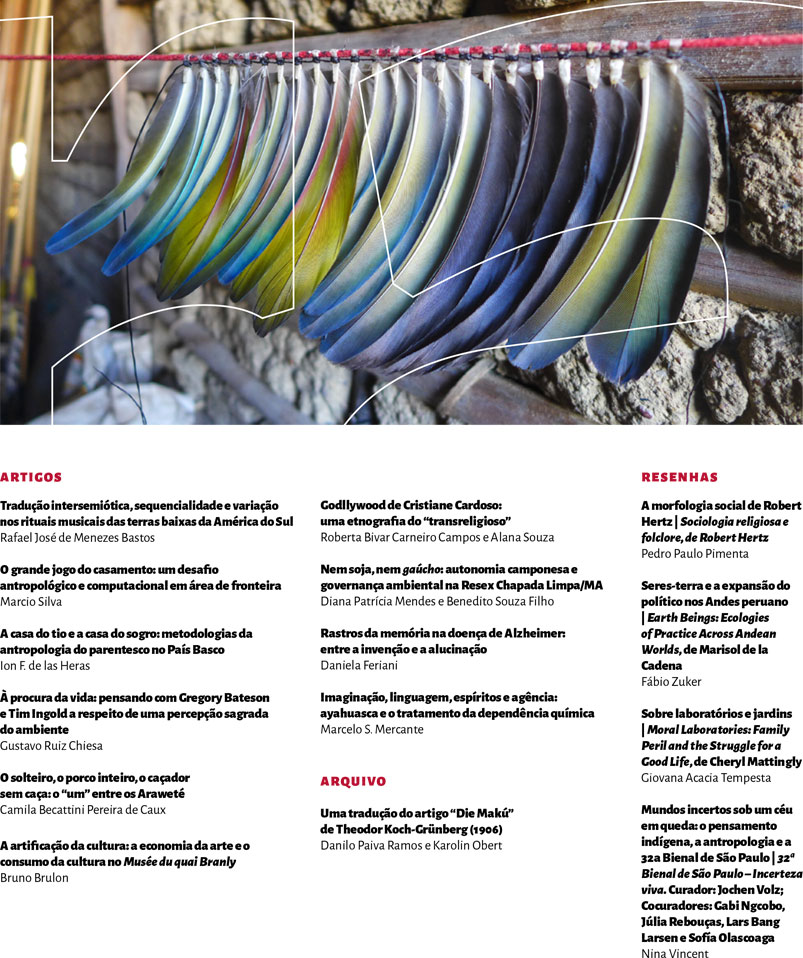The Grand Game of Marriage: An Anthropological and Computational Challenge in an Area of Frontier
DOI:
https://doi.org/10.11606/2179-0892.ra.2017.137313Keywords:
Kinship, Genealogical Method, Translation and Models, Alliance Theory, Enawene-NaweAbstract
According to Schneider (1984: 4, 119-120), anthropological studies of kinship are anchored in a Doctrine of the Genealogical Unity of Mankind which has distorted ethnographic perception and consecrated a non-subject. This Doctrine can be summarized as follows: in all human cultures kinship concerns the acknowledgement of natural ties among individuals, thus warranting its universal translation in genealogical terms. This article counters Schneider’s criticism on two fronts: inquiring if the genealogical method should necessarily be understood as a means of translation; and challenging whether the definition of the genealogical method requires such a Doctrine in the first place. In parallel, drawing considerations from ethnographic research concerning the Enawene-Nawe, this article, within the horizon of the alliance theory, argues in favor of the rehabilitation of the genealogical method, which in the present century cannot dismiss computational tools. This, considering that “the first task of anthropology, prerequisite to all others, is to understand and formulate the symbols and meanings and their configuration, that a particular culture consists of” (Schneider 1984: 196, emphasis in the original).Downloads
Download data is not yet available.
Downloads
Published
2017-09-27
Issue
Section
Articles
License
Authors who intend to publish in this journal must agree with the following terms:
- a) Authors retain copyright and grant the journal the right of first publication. The work is simultaneously licensed under the Creative Commons Attribution License, which allows the work to be shared as long as the author and the initial publication in this journal are appropriately credited.
- b) Authors are authorized to sign additional contracts for non-exclusive distribution of the version of the work published in this journal (e.g., to publish it as a book chapter), as long as the author and the initial publication in this journal are appropriately credited.
- c) Authors are allowed and encouraged to publish and distribute their work online (e.g. on their personal webpage) after the editorial process, for this can generate productive changes as well as increase the impact and citation of the work. See The Effect of Open Access Publications.
How to Cite
Silva, M. (2017). The Grand Game of Marriage: An Anthropological and Computational Challenge in an Area of Frontier. Revista De Antropologia, 60(2), 356-382. https://doi.org/10.11606/2179-0892.ra.2017.137313




